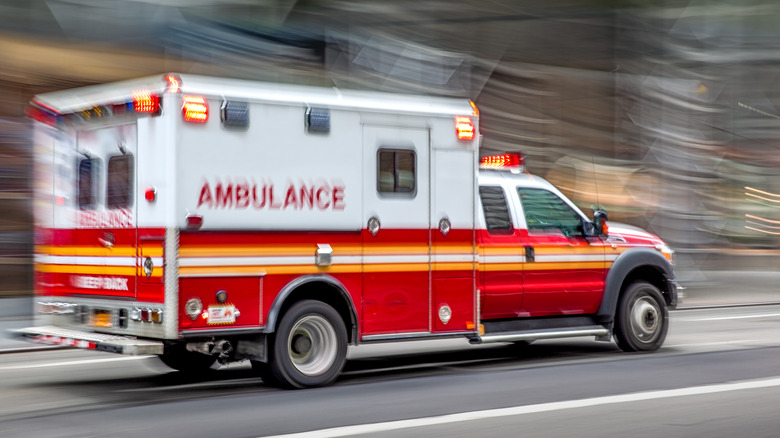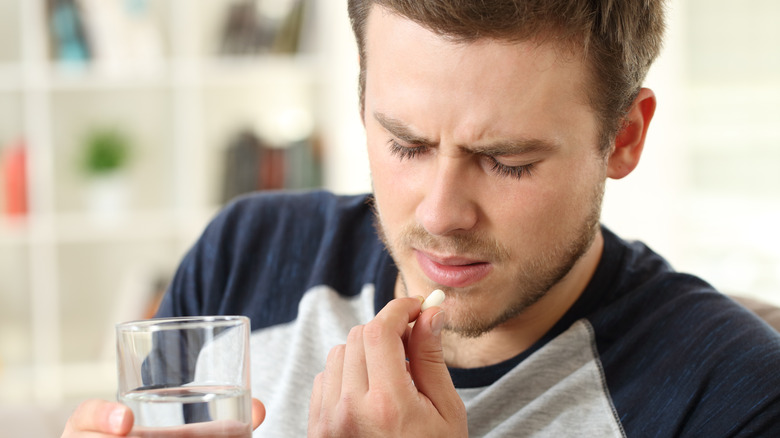Antidepressants are commonly prescribed to treat the symptoms of depression and other mood disorders by influencing the way the brain produces serotonin and other neurotransmitters. Like any other medication, antidepressants must be taken only as prescribed. Taking too many can be dangerous and even fatal.
Your doctor may recommend a specific dosage depending on various factors, according to Healthline. Among them are the type of antidepressant, your age and weight, and the presence of pre-existing conditions. Antidepressants are classified into different categories that include selective serotonin reuptake inhibitors (SSRIs), serotonin-norepinephrine reuptake inhibitors (SNRIs), tricyclic antidepressants (TCAs), and monoamine oxidase inhibitors (MAOIs).
For SSRIs, you’ll likely be prescribed between 20 and 80 milligrams per day, while SNRIs generally fall between the 75 and 225-milligram range (via Healthline). TCAs range between 40 and 100 milligrams per day, and MAOIs are prescribed based on weight, at around 2 milligrams per kilogram of body weight.
While these numbers aren’t set in stone, it’s important to follow your doctor’s exact dosing instructions. Contrary to what many people believe, a large quantity of pills is not necessary to cause an overdose. Oftentimes, an individual need only ingest a bit more than the recommended dose to experience symptoms.
Signs of an antidepressant overdose

The symptoms of taking too many antidepressants depend on the amount ingested. Milder symptoms of an overdose include headache, fever, confusion, nausea, and vomiting, while more severe symptoms include coma, cardiac arrest, hallucinations, and even death, according to Healthline.
Serotonin syndrome is another consequence of antidepressant overdose caused by the build-up of serotonin in the body and features all of the above symptoms. You should not confuse overdose symptoms with medication side effects, which typically only occur when starting and increasing an antidepressant. If you experience mild symptoms, you should contact your doctor right away. In the case of severe symptoms, you will need to seek emergency medical care.
For those who have overdosed, healthcare professionals may try different treatments based on your condition. They may pump your stomach to reduce the medication that still hasn’t been absorbed by the bloodstream, use activated charcoal to soak up the medication, and administer benzodiazepines for sedation (via Healthline). A hospital stay for observation may also be necessary, depending on the severity of the overdose.
Medical News Today points out that antidepressants are the third most common substance to cause poisoning in the United States. They also happen to be among the 25 medications most likely to lead to a fatal overdose. This only goes to show the importance of ensuring you take the correct, prescribed dose of your antidepressant and that you stay attentive to any signs of overdose.




